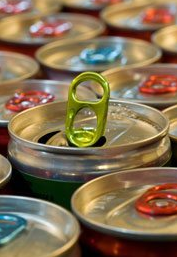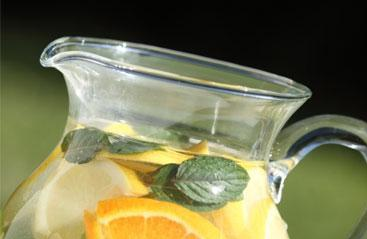12 Top Foods To Increase - One of the most common problems faced by both men and women in today’s world is the reduction in sexual urge and desire or low libido. Sexual desire is an interest that develops in men or women to engage in sexual activities or create an interest in sexual objects. It can be triggered by both internal as well as external cues. If you are also feeling the decrease in the sex drive than before, then you might be facing some medical condition. There are many foods that will help in driving your sexual desire and increasing your libido. But, if these natural foods fail, then you need to consult a doctor.
Common Causes And Symptoms Of Low Libido
- Job stress and peer pressure
- Interpersonal relationship problems
- Unresolved issues
- Excess Alcohol
- Lack of sleep
- Parenting
- Obesity
- Depression
- Thyroid disorders and fibroids
- Certain medications
- Erectile Dysfunction
- Menopause
- Lack of intimacy
- Age
- Low testosterone
Foods To Increase Sexual Drive
There many foods that can help you to naturally increase your sexual appetite and spice up your sex life. The following are the foods that will help in safely and naturally help in increasing your libido.
1. Chocolates
Pure chocolates made from unadulterated raw cocoa is a super food. It contains more antioxidants than green tea or red wine. A chemical known as phenylethlamine is present in the chocolates that will help in creating a sense of excitement in you.
• Eating chocolates everyday will help you in increasing your sexual drive.
2. Oysters
Oysters help in boosting dopamine, a well being and feel good hormone that will help in boosting libido in both men and women. It is an important food for men who love to increase their sexual drive.
• Try to include oysters in your diet at least two times a week.
• It will help in improving the production of testosterone as it is rich in zinc.
• It will also help in boosting the production of healthy and active sperms.
3. Pumpkin Seeds
Pumpkin seeds are rich in essential vitamins and also very rich in zinc.
• The zinc in pumpkin seeds helps in boosting production of sperms in men and will also help in correcting testosterone deficiency in men.
• They are loaded with Vitamins B, E, D, C and K that will help in boosting libido.
4. Raw Garlic
Eating raw garlic every day will help in boosting your sexual drive. There is no need to worry that it might turn your partner away, but it will help in improving your performance in bed manifold.
• The heat in the garlic is the main thing that will help in increasing your sexual drive.
• It contains allicin that helps in improving blood flow to the sexual organs.
• Take it every day for a month to see visible results.
5. Bananas
Bananas are rich in potassium and Vitamin B. It will help in increasing the libido in men as it contains bromelain enzyme.
• Take one or two ripe bananas everyday to increase your sexual desire and to boost testosterone levels.
6. Avocados
They are an excellent source of folic acid. They will help in providing energy to the body and will also aid in easy protein metabolism.
• Avocados help in increasing libido in men and women.
• The Vitamin B6 helps in boosting production of male hormones.
• The potassium in avocado helps in increasing female libido and also regulating the thyroid glands in women.
7. Blueberries
Blueberries are found to be a natural food that will help in driving the sexual pleasure in men to greater heights.
• They are rich in antioxidants that will help in relaxing the blood vessels and thereby improve the circulation of the blood to al parts of the body including the sexual organs.
• Men will enjoy stronger erections on consumption of blueberries regularly.
• It will also boost dopamine levels and will help in boosting the production of feel good hormones.
8. Peanuts
Peanuts are rich source of L-arginine and will help in especially increasing libidos in men.
• The L-arginine in peanuts has been proven to also improve the erectile dysfunction in men.
• The amino acids in peanuts help in relaxing the blood vessels and thereby improve blood circulation.
9. Watermelons
• Watermelon is regarded to be a natural Viagra with no side effects.
• They produce L-citrulline, an amino acid, which helps in increasing the blood flow to sexual organs.
• It will also help in boosting nitric oxide in the body which takes away the fatigue, mental and sexual dysfunction factor away.
10. Fishes
Some of the sea water fishes are found to be a rich source of omega -3. These fatty acids help in boosting the sexual urge in men and women and will also improve sexual stamina. They will help in fighting depression, improves the mood and helps in proper functioning of the brain and the nervous system. Some of the fishes that you need to include in your daily diet are:
• Trout
• Anchovies
• Herring
• Wild salmon
• Tuna
• Mackerel
• Sardines
11. Dates
Dates are a rich source of iron that will help in improving and strengthening the ovulation process is women. It will also help in increasing the sexual desire in women and men.
• Take a few numbers of pure Arabian dates and soak them in a cup of honey.
• Take one or teaspoons of the honey every day to improve your sexual desire.
12. Onions
Onions have aphrodisiac properties and hence will help in increasing libido.
• Peel off the skin of the onion. Crush it and then fry it in clarified butter.
• Take this regularly with a spoon of honey every morning on an empty stomach to boost your sexual drive.
Are you worried that you do not have the energy to perform in bed? Do you like to satisfy your partner in bed like never before? If you are looking at ways and means to increase your sexual drive, then you can try out a combination of the above foods to enjoy increased libido.
http://www.myhealthtips.






